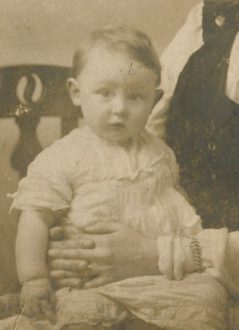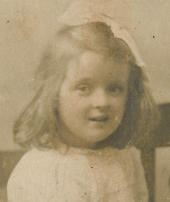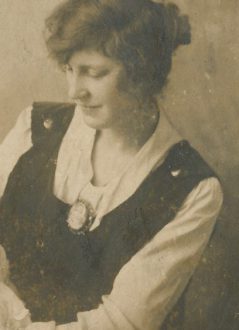
1917
John Burgess Wilson was born in Harpurhey, Manchester, on Sunday 25 February 1917. His mother, Elizabeth Burgess, was a singer and dancer on the music-hall stage in Glasgow and Manchester. His father, Joseph Wilson, played the piano in music halls and silent cinemas before taking a job as a cashier at Swift’s beef market in Manchester. Elizabeth and Joseph were married in a civil ceremony at Prestwich Register Office on 26 December 1908. To ensure that their union was recognised by the Catholic church, they had a subsequent Catholic marriage ceremony at Our Lady of Loretto and St Michael Catholic Church at Musselburgh, Scotland, on 9 March 1909. Burgess's mother - then a Protestant - had received a conditional baptism into the Catholic faith the day before her marriage ceremony in Musselburgh.




